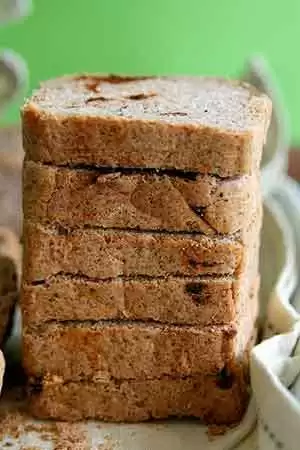Celiac.com 08/31/2010 - In my work as an author, researcher, and gluten-free advocate, I know how challenging the gluten-free diet can be. One of the most vital and tricky parts of the diet is learning what foods have gluten and which are "naturally" gluten-free as well as learning how to read labels. Unfortunately, these aren't always enough. Just because a grain is supposed to be "naturally" gluten-free, doesn't mean that it is. In fact, a recent study tested 22 so-called "inherently" gluten-free grains and found that over thirty percent of them had gluten.
Gluten is a protein found in the grains wheat, barley, and rye, and is inherently lacking in grains such as oats, buckwheat, quinoa, millet, soy, sorghum, flaxseed, rice, and amaranth seed. A study tested 22 of these "naturally" gluten-free grains, and 7 of them had a gluten amount higher than 20 ppm, which would disqualify them from being labeled as gluten-free under the proposed FDA guidelines.
Celiac.com Sponsor (A12):
One type of soy flour tested had nearly 3,000 ppm of gluten, two millet flour products had an average of between 305-327 ppm, and the sorghum flour had a mean average of 234 ppm. Four of those seven products didn't have allergen advisory statements.
What's the reason behind these alarming research results? Dr. Mercola, an osteopathic physician and board-certified family medicine doctor, attributes the cause to cross-contamination during the processing of these grains and also to a lack of testing of final products for gluten.
Dr. Mercola, who is trained in both traditional and natural, or holistic, medicine, raises the question, however, about whether not only celiacs but people in general should even be consuming grains in the first place.
According to Dr. Mercola, "Most people need to avoid grains." On his website, he states that several autoimmune disorders, not just celiac disease, can be "significantly improved by avoiding grains," and eliminating grains from your diet can also decrease your risk of heart disease, high cholesterol, Type 2 Diabetes, and cancer.
This is due to the fact that, as Dr. Mercola explains, "grains and sugars are inherently pro-inflammatory and will worsen any condition that has chronic inflammation at its root – and not just inflammation in your gut, but anywhere in your body." In his experience, about 75-80% of all people benefitted from going grain-free.
According to Grain Free Living, the health benefits of going grain-free have been proven "through the personal experience of hundreds of people worldwide who have experienced significant relief from symptoms of Crohn's disease (and many other illnesses of the digestive system) and also for chronic fatigue." The mainstream medical community has been critical of the "anecdotal evidence" from the testimonies of those who have reported an improvement in health. Clinical studies on the matter have yet to be carried out.
A grain-free diet doesn't have to be boring. In fact, grain-free cookbooks have come out with grain-free recipes for favorite American foods such as pancakes, muffins, lasagna, cakes, and cookies. For those who have a digestive or other condition or who wish to eliminate health risks, I would recommend talking to your healthcare practitioner about a grain-free diet.
For the gluten-free community who wishes to continue to eat grains, this study of the gluten content of "naturally" gluten-free grains can be startling. Look for grain products that are certified gluten-free by such organizations as the Open Original Shared Link (GFCO) or make sure to do thorough company research before you try "inherently" gluten-free grains.
References:
- Thompson T, Lee A, Grace T. Gluten contamination of grains, seeds, and flours in the United States: A pilot study. J Am Diet Assoc. 2010;110:937-940. Abstract available at: Open Original Shared Link
- Thompson, T. Contamination of Naturally Gluten-Free Grains. Living Gluten-Free. June 1, 2010. Available at: Open Original Shared Link









Recommended Comments